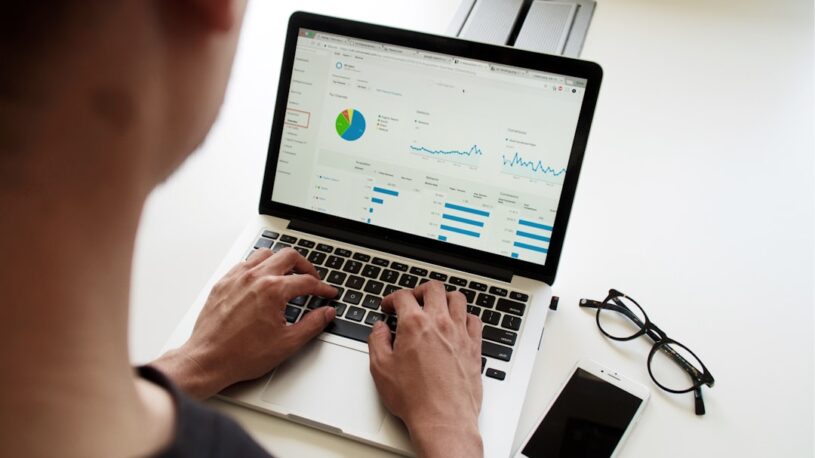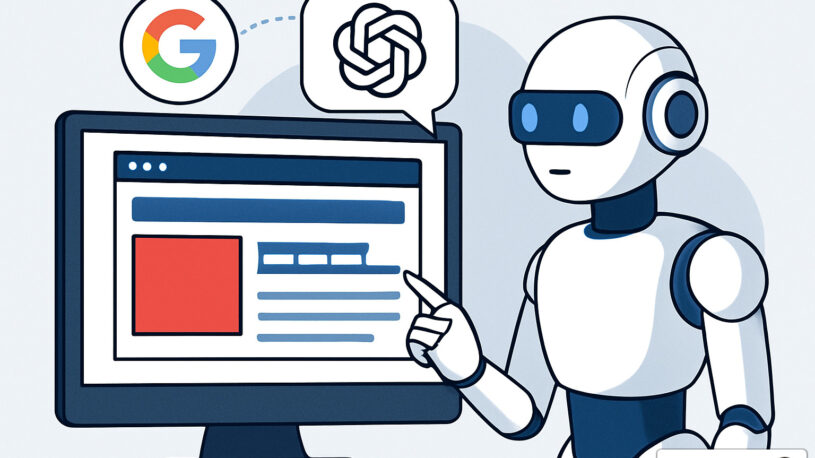

San Antonio SEO vs. PPC: Which Is Better for Your Business?
When it comes to digital marketing campaigns, it’s important for your business to understand the difference between San Antonio SEO (Search Engine Optimization) and PPC (Pay-Per-Click) if they want to improve their online visibility.
Keep these key concepts in mind:
- SEO: A strategy focused on optimizing your website to rank higher in organic search results. It involves keyword research, on-page optimization, and building backlinks.
- PPC: A paid advertising model that places your ads in front of potential customers through search engines and social media platforms. You pay each time someone clicks on your ad.
Choosing between search engine optimization in San Antonio vs. PPC can have a big impact on how your business grows. Here are a few things to think about:
Understanding these factors will help businesses make smart decisions that fit their goals and resources. Your choice between SEO and PPC could affect not only your visibility but also how engaged customers are with your brand and how credible it appears.
Table of Contents
Understanding SEO and PPC
Search Engine Optimization
Search Engine Optimization (SEO) refers to the methods used to enhance a website’s visibility in organic search results. Components of SEO include:
The significance of organic traffic lies in its sustainability. Unlike paid avenues, organic results build long-term authority and trust with users. When executed correctly, SEO creates a stable flow of visitors eager for your content or services.
Pay Per Click (PPC)
Pay Per Click (PPC) is an advertising model where businesses pay for traffic generated through ads on platforms like Google Ads. This method allows for:
- Ad Creation: Crafting compelling advertisements that attract user attention.
- Audience Targeting: Selecting specific demographics based on interests, behavior, and location to maximize ad relevance.
The role of paid search traffic becomes apparent through its ability to deliver immediate visibility. When users conduct searches related to your offerings, your ads can appear at the top of search results, capturing attention right away. For businesses seeking quick exposure or targeting specific campaigns during peak seasons, PPC serves as an effective strategy.
Understanding the fundamental differences between SEO and PPC equips businesses with insights needed for smart marketing decisions. Each approach has unique advantages and challenges that can significantly impact overall online presence and growth strategies.
Comparing the Effectiveness of SEO and PPC
When evaluating the effectiveness of SEO and PPC, it’s essential to consider their respective advantages and disadvantages.
Benefits of SEO
- Cost Savings: Once established, SEO can provide consistent organic traffic without ongoing costs for clicks, making it budget-friendly in the long run.
- Credibility: Organic search results often carry more credibility. Users tend to trust websites that rank naturally over paid advertisements.
Despite these benefits, implementing SEO comes with its challenges:
- Time-Consuming: Achieving high rankings takes time. Patience is necessary as it can take months to see significant results.
- Competition: Many businesses target the same keywords, making it increasingly difficult to rank highly. This competitive landscape requires ongoing effort and strategy adjustments.
Advantages of PPC
- Immediate Results: PPC campaigns generate traffic almost immediately after launching. This immediacy can be crucial for businesses needing quick visibility.
- Precise Targeting: With options for demographic targeting, geographic settings, and retargeting strategies, you can reach specific audiences effectively.
However, there are notable disadvantages to consider:
- Cost per Click: Each click incurs a cost. In competitive industries, this can lead to significant expenditure without guaranteed conversions.
- Ad Fatigue: Users may become accustomed to seeing the same ads repeatedly, leading to decreased engagement over time. Regularly refreshing ad content is necessary to maintain interest.
The choice between benefiting from long-term results through SEO or opting for immediate visibility via PPC will depend on your unique circumstances and objectives.
Cost Analysis for Businesses
Understanding the costs associated with SEO and PPC is crucial for businesses aiming to maximize their marketing budget. Each strategy has unique financial implications that must be carefully considered.
Costs Associated with SEO
- Content Creation: Producing high-quality, authoritative content requires investment. This includes hiring writers, graphic designers, or purchasing software tools for content management.
- Optimization: On-page and technical SEO efforts often require expertise in HTML, CSS, and other technical skills. This could involve hiring SEO professionals or agencies to ensure your website is optimized for search engines.
- Link Building: Off-page SEO strategies like acquiring backlinks may involve outreach efforts or even paying for guest posts on reputable sites.
- Long-term ROI Considerations: While initial costs can be high, the potential for organic traffic growth offers a significant long-term return on investment. Once established, organic rankings can drive consistent traffic at a lower ongoing cost compared to paid strategies.
Costs Associated with PPC
- Bidding Strategies: PPC involves setting bids for keywords that can vary widely based on competition levels. Understanding how much to bid is essential for maximizing ad visibility while controlling costs.
- Ad Creation: Crafting effective ad copy and visuals requires resources, whether in-house or outsourced to professionals.
- Competition Levels: In competitive industries, bidding can escalate quickly, resulting in higher costs per click (CPC). Businesses need to monitor their ad spending closely to prevent overspending without yielding results.
- Budget Considerations: Establishing a clear budget is vital for PPC campaigns. Allocating funds strategically across different campaigns helps manage cash flow while maximizing visibility.
Timeframe for Results from SEO Efforts vs PPC Campaigns
Understanding the timeframe for results is crucial when deciding between SEO and PPC strategies.
Typical Timeline for SEO Results
Achieving results from SEO efforts typically takes time. Here are some key points to consider:
- Initial Results: You might start seeing changes in organic search traffic within 3 to 6 months after implementing an SEO strategy.
- Full Effects: It can take 6 to 12 months or longer to fully realize the benefits of consistent optimization, particularly for competitive keywords.
The following factors can influence this timeline:
- Quality of content: Authoritative, well-researched articles attract more backlinks and improve ranking.
- Competition: Highly competitive niches may extend the time needed to achieve visibility.
- Technical SEO: Proper website structure and crawlability can significantly impact how quickly search engines index your site.
Instant Visibility through PPC Ads
PPC offers immediate exposure, but several factors influence performance and conversion rates:
- Immediate Traffic: Your ads can appear on search engine results pages (SERPs) almost instantly after launching a campaign. The speed of gaining visibility is one of the primary advantages of paid search results.
- Performance variables:
- Ad Quality: Higher quality scores lead to better placements and lower costs per click.
- Budget Allocation: A well-defined budget allows you to scale effectively while managing costs.
- Targeting Options: Precise demographic targeting can enhance ad performance, leading to higher conversion rates.
Both strategies serve distinct purposes in your marketing approach. While SEO builds long-term authority and trust gradually, PPC provides quick access to potential customers.
Audience Targeting Strategies in SEO Techniques vs PPC Techniques
Understanding your target audience is crucial for both SEO and PPC campaigns. Each strategy employs distinct methods to reach potential customers effectively.
SEO Audience Targeting
Identifying buyer keywords is a foundational aspect of effective SEO targeting. Utilizing keyword research tools like Ahrefs can significantly enhance your approach. Here’s how:
1. Keyword Research
- Start by entering relevant terms related to your business in Ahrefs’ Site Explorer.
- Analyze the Keywords Report for insights on search volume, competition, and user intent.
- Focus on long-tail keywords that reflect specific buyer intent, as these often lead to higher conversion rates.
2. Content Optimization
- Once you identify valuable keywords, integrate them into your content strategically.
- Ensure that your on-page SEO elements (titles, headers, meta descriptions) are aligned with these buyer keywords.
PPC Audience Targeting
PPC campaigns benefit from precise demographic targeting. This allows businesses to reach their ideal customers more efficiently:
1. Demographic Targeting
- Utilize platforms like Google Ads or Facebook Ads to segment audiences based on age, gender, and interests.
- Geographic targeting helps focus efforts on specific locations, ensuring ads reach users who are most likely to convert.
2. User Behavior Insights
- Analyze behavioral data to understand how users interact with your ads. This includes monitoring click-through rates and conversion metrics.
- Such insights allow for continuous refinement of ad campaigns by adjusting messaging, bidding strategies, and targeting parameters.
Combining SEO and PPC for Optimal Results
Combining SEO and PPC strategies creates a powerful synergy that maximizes visibility and reach for your business. Each approach has distinct advantages that, when utilized together, can enhance your overall digital marketing efforts.
The benefits of a mixed strategy include:
- Increased Visibility: SEO builds long-term organic presence, while PPC delivers immediate exposure. This combination ensures your brand appears in both organic search results and paid listings, capturing diverse audience segments.
- Support for SEO Efforts: PPC can promote content that is still gaining traction through SEO. By running targeted ads on new blog posts or product pages, you drive initial traffic and gather data on user behavior, which informs ongoing optimization efforts.
- Targeting Competitors’ Keywords: Utilizing PPC allows you to bid on keywords where competitors may dominate in organic searches. This strategy not only generates traffic but also raises awareness about your offerings.
- Testing Ground for Keywords: PPC can serve as a testing platform for keywords before committing to them in your SEO strategy. Evaluating the performance of certain keywords through PPC provides insight into their potential effectiveness in driving organic traffic.
Find Out What’s Best for Your Brand Today!
Determining which San Antonio digital marketing strategy to use can significantly impact your business. Consider the following aspects:
- Business Goals: Define what you want to achieve. Is immediate visibility crucial, or is long-term organic growth more aligned with your objectives?
- Budget: Evaluate your financial resources. SEO requires time and effort, while PPC demands a budget for clicks.
- Target Audience: Understand how your audience engages with content. Are they more likely to trust organic results or respond to targeted ads?
Each strategy offers distinct advantages that can drive meaningful results, whether through sustainable organic growth or immediate visibility and traffic.
Custom-tailored website design in San Antonio ensures that your site supports SEO best practices and can efficiently handle PPC traffic, providing a seamless user experience that converts visitors into customers.
Don’t leave your brand’s success to chance—seek San Antonio web development and consulting that aligns with your marketing strategies to maximize your online potential.
Frequently Asked Questions About Digital Marketing
What is the difference between SEO and PPC?
SEO (Search Engine Optimization) focuses on optimizing your website to rank higher in organic search results, while PPC (Pay Per Click) involves paying for ads that appear on search engines. SEO aims for long-term visibility and organic traffic, whereas PPC provides immediate visibility through paid ads.
How does SEO benefit businesses?
SEO benefits businesses by increasing organic traffic, enhancing credibility, and providing cost savings over time. It helps build a strong online presence that can lead to sustainable growth and long-term success.
What are the advantages of using PPC for advertising?
PPC offers immediate results and precise audience targeting, making it an effective strategy for quick visibility. It allows businesses to reach specific demographics and track performance metrics closely, ensuring efficient use of advertising budgets.
What should I consider when budgeting for SEO vs PPC?
When budgeting for SEO, consider costs associated with content creation, optimization, and the long-term ROI. For PPC, factor in bidding strategies, competition levels, and ongoing ad spend to maintain visibility. Both strategies require careful budget planning to maximize effectiveness.
How long does it take to see results from SEO compared to PPC?
Typically, SEO efforts may take several months to show significant results due to the time required for search engines to index changes. In contrast, PPC campaigns can yield instant visibility; however, factors like ad performance and conversion rates can influence overall success.
Can combining SEO and PPC strategies enhance my marketing efforts?
Yes! Combining SEO and PPC strategies can create synergy that maximizes visibility and reach. Using PPC can support ongoing SEO efforts by driving immediate traffic while you build your organic presence, ultimately leading to better overall results.
Table of Contents









